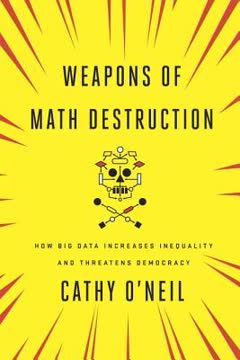Searching...
Top 10 Books on Predictable Irrationality and Decision-Making
Explore 10 insightful books that unravel the complexities of human decision-making and the predictable errors we make in judgment.
Book Summaries
The Impact of the Highly Improbable
Taleb's influential book introduces the concept of Black Swan events, urging readers to rethink their approach to risk and uncertainty in life and business.
3 Key Takeaways:
- Black Swans: Unpredictable events with massive impact
- The narrative fallacy: Our tendency to create stories from randomness
- Mediocristan vs. Extremistan: Two fundamentally different worlds of randomness
The Hidden Role of Chance in Life and in the Markets
Nassim Nicholas Taleb's provocative work challenges our understanding of luck and skill, revealing how randomness shapes our lives and decisions.
3 Key Takeaways:
- Randomness Often Masquerades as Skill in Financial Markets
- The Narrative Fallacy: Our Tendency to Create Stories from Random Events
- Survivorship Bias: We Only See the Winners, Not the Losers
Why So Many Predictions Fail - But Some Don't
Nate Silver's insightful analysis of prediction and uncertainty provides valuable lessons on how to improve forecasting in various fields.
3 Key Takeaways:
- Prediction requires balancing signal and noise
- Overconfidence leads to poor forecasts
- Bayesian thinking improves predictions
Religion, Terror, and the Future of Reason
Sam Harris's provocative critique of faith challenges readers to confront the dangers of religious extremism and the importance of reason in modern society.
3 Key Takeaways:
- Faith-based religion is a source of violence and intolerance
- Reason and ethics can exist without religious faith
- Islam poses unique challenges to global peace and security
How Big Data Increases Inequality and Threatens Democracy
Cathy O'Neil's critical examination of big data highlights how algorithms can perpetuate inequality, urging readers to consider the ethical implications of data-driven decisions.
3 Key Takeaways:
- Big Data algorithms can become Weapons of Math Destruction (WMDs)
- WMDs often punish the poor and reinforce inequality
- College rankings exemplify how WMDs can distort entire systems
The Art and Science of Prediction
Philip E. Tetlock's groundbreaking research on superforecasters reveals how to improve prediction skills, emphasizing the need for open-mindedness and continuous learning.
3 Key Takeaways:
- Superforecasters exist and outperform experts and prediction markets
- Cognitive abilities and knowledge are important, but not sufficient
- Active open-mindedness is crucial for accurate forecasting
Controlling the Human Element of Security
Kevin D. Mitnick's classic work on social engineering reveals how human psychology can be manipulated, offering crucial insights for improving security practices.
3 Key Takeaways:
- Social engineering exploits human psychology to breach security
- Trust is the foundation of successful social engineering attacks
- Information gathering is crucial for crafting convincing pretexts
Why We Fear the Things We Shouldn't--and Put Ourselves in Greater Danger
Daniel Gardner's exploration of fear and risk perception reveals how our instincts can mislead us, providing insights into making better decisions in uncertain times.
3 Key Takeaways:
- Our perception of risk is often distorted by psychological biases
- Media and marketing exploit our fears for profit and attention
- We are safer and healthier than ever, yet increasingly anxious
Why Smart People Make Dumb Mistakes
David Robson's insightful exploration reveals why even the brightest minds can falter in decision-making, emphasizing the importance of emotional intelligence and critical thinking.
3 Key Takeaways:
- Intelligence alone is not enough: The paradox of smart people making stupid mistakes
- Dysrationalia: When high IQ fails to translate into rational thinking
- The curse of expertise: How knowledge can blind us to new information












